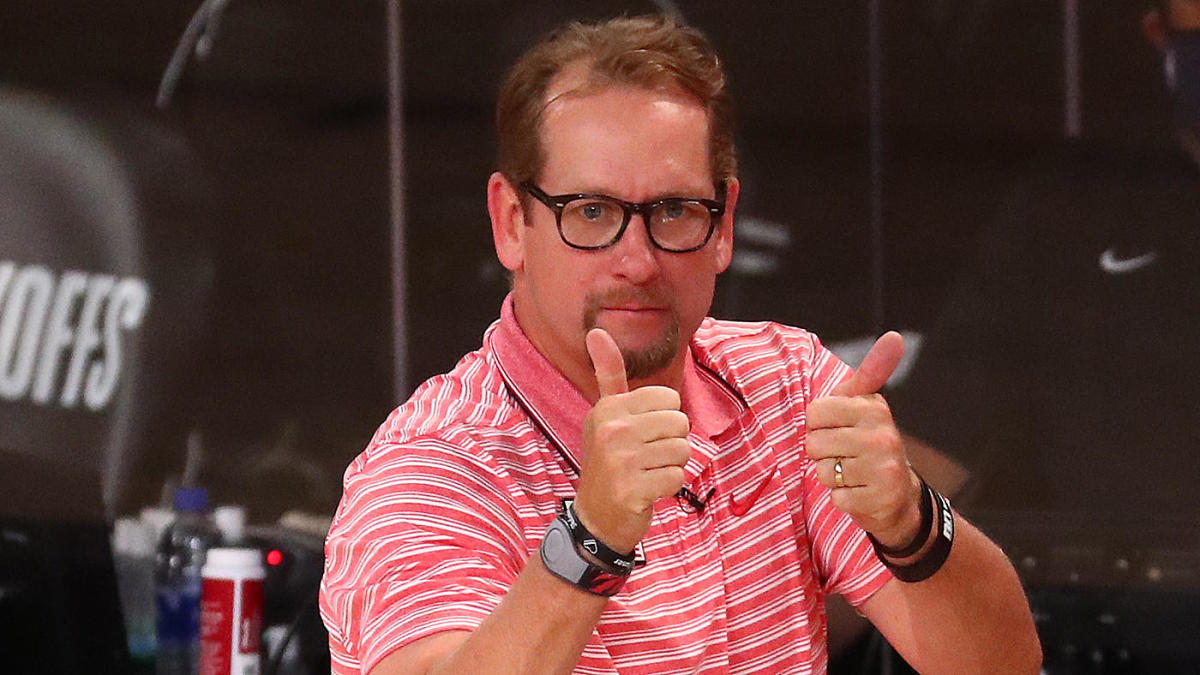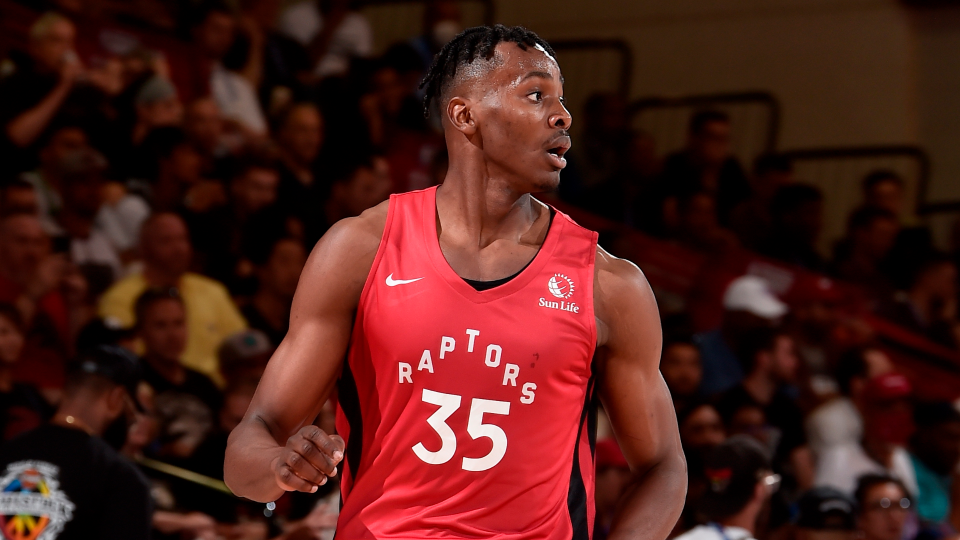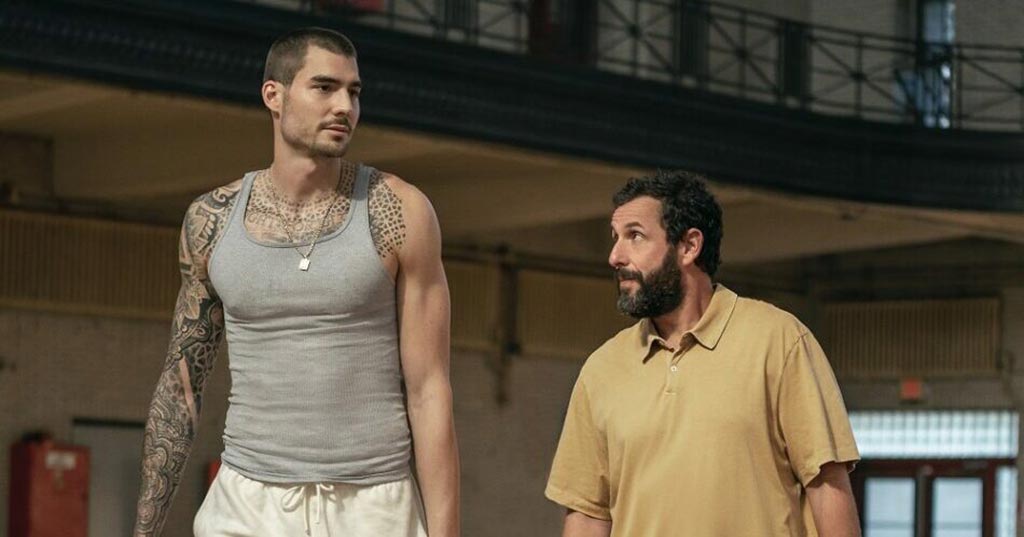The following is part of Raptors Republic’s pieces reviewing the seasons for the Toronto Raptors. You can find all the pieces in the series here.
Coaching might be the ultimate black box in the NBA. It’s easy to see the input — the coach’s name is right there in the introductions with the players! — and it’s easy to see the output, at least insofar as we see how many games a team wins and how far it goes in the playoffs. But everything that happens in the middle is basically invisible as far as the average fan (and even the credentialed reporter) can tell. Sure, we can (and seem to love to) criticize or praise rotations, which is basically the extent of the average fan’s understand of a coach’s role. Perhaps we can identify a team’s offensive structure or even the plays run on inbounds play. Some teams, but not all, have unique philosophies designed to capitalize on market inefficiencies across the league. Even if one can understand all that, it’s still only the barest role of a coach in the NBA. It’s ridiculous to try to judge a coaching without seeing practices, without knowing who calls plays, without knowing relationships and seeing all the threads of the webs that bond NBA teams together. Coaches are crucial yet invisible.
Call out understanding the tip of the iceberg. And with all that said, Nick Nurse was fantastic in 2021-22. Probably.
The Toronto Raptors had a number of enormous, likely-to-break-the-back-of-almost-any-team flaws entering the season. They had some of the worst shooting, from the top to the bottom of the roster, in the league. They were inarguably the worst two or three driving teams in the league. And they didn’t have a single traditional center, capable of playing drop defense and defending both the roller and the ball-handler, without ceding an issue elsewhere on the court. Masai Ujiri and the Raptors’ brain trust didn’t address any of those problems throughout the season, and arguably their drop defense issue worsened as Khem Birch’s knees refused to heal.
As a result, Nick Nurse was forced every night to solve the equivalent of Ocarina of Time’s Shadow Temple defended by some of the best athletes in the world. With all of the above caveats certainly applying, he arguably did as deft a job as any coach possibly could have. Nurse identified unique, unexpected solutions that had little precedence in the NBA, and he applied them with relative flexibility, allowing the team to build alongside the approach to overcome the weaknesses.
The shooting never opened up the court for Toronto’s rangy wings, but Fred VanVleet fired up the 12th most threes per game in NBA history, topped only in per-game attempts by James Harden, Steph Curry, Damian Lillard, and Buddy Hield. (Harden, by the way, never in his career matched VanVleet’s combination of frequency and accuracy in 2021-22.) Similarly, OG Anunoby and Gary Trent jr. fired up a boatload of triples, and the three players combined to average more than half of Toronto’s total triple attempts. Other relative non-shooters, perhaps best represented by Thad Young, were empowered to launch threes from the corner. Spacing didn’t become a strength, but the Raptors crawled their way to the league’s version of “hey, it’s a living.”
Toronto’s rim pressure was disastrous throughout the season, so Nick Nurse evolved his team backwards to the mid-2010s, allowing players like Pascal Siakam and Trent the freedom to fire away from the long midrange. It didn’t blow the doors off exactly, but it allowed Toronto to find something beyond beating its head against a closed door again and again in the half court. For all the shots they missed by allowing their stars to fire pull-up midrangers and their non-shooters to toss up above-the-break triples, the Raptors enjoyed the second-highest offensive rebounding rate in the league. They were the teamwide embodiment of the Kobe assist, turning misses into offensive advantages by playing long, rangy, athletic wings at every position.
In fact, Toronto only managed to win 48 games because VanVleet was otherworldly in the first half of the season and Siakam was even better than that in the second. Judged on talent and roster construction alone, 48 wins was not a reasonable expectation. Outside of simply giving them the ball, the Raptors did very little to make the game easier for their stars, yet those talents found outrageous success anyway. How much of that belongs on the shoulders of the coach? My short answer is I have no idea. My long answer is that I have absolutely no fucking idea. I shouldn’t even being trying to judge an impossibility — the arrogance! — but the ceaseless maw of content demands contstant worship. So: Toronto did better than it should have, and surely VanVleet and Siakam deserve praise (and All-Star and All-NBA berths as a result), but it definitely can’t hurt our consideration of Nurse, at the very least.
On the defensive end, Toronto managed to overcome its lack of the single most important role on the court by playing a hyper-modern combination of a switching, blitzing, rotating, snarling brand of defense. Who needs a rim protector when they defended by committee, often with guards swiping from below? And who needs a big to defend two players at the same time when a team pre-rotates, intentionally pulls in a defender from the corner, and wants its players to recover extraordinary distances? Because they played such a wild brand of defense, they forced the highest rate of turnovers in the league.
Another result was that Toronto gave up a lot more at-rim attempts than they should have, the 13th most on a per-100-possesion basis. And they were below average, only 22nd in the league, at forcing misses there. Even worse, Toronto gave up the single highest proportion of corner threes in the NBA. And this is a team with multiple elite individual defenders in VanVleet, Siakam, Anunoby, and Precious Achiuwa. Toronto finished with the 10th-best defense in the league.. Is that better than it should have been given the weaknesses around the rim and the corners — the two highest-efficiency spots on the court during live play? Or is it worse than it should have been given Toronto’s outrageous cast of defensive talent? Hard to say, but the Raptors needed transition points like a mouse needs cheese: Both are important, and life-giving to be sure, but sometimes the quest for fastbreak buckets (or cheese) results in some ugly deaths that really don’t need to happen. Toronto ended up slightly below average offensive and slightly above average defensively. Realistically, it should have been much better defensively and much worse offensively, but the team made a conscious choice to sacrifice defensive solidity to jump-start a transition offense. And, hey, again: you can’t argue with 48 wins.
That’s the ultimate praise for Nurse, and it requires no parsing of opacity to understand. The Raptors won more games than they should have. They played a unique and trail-blazing style, attacking the offensive glass and forcing turnovers defensively, and that led them to capitalize on the philosophical weaknesses leaguewide.
With the big picture in place, there were certainly some hiccups. The rotation was slimmer than Chris Boucher, and it arguably led to some of the stars — namely VanVleet — being less healthy than they should have been come playoff time. It’s easy to point to him leading the league in minutes per game (tied with Siakam) and never finding his health. That’s not necessarily an accurate description of causality — again, it’s impossible for us to know without access to team doctors and a hefty dosage of truth serum what actually causes injury — but it would make sense if Nurse’s rotations led to VanVleet’s poor playoff performance. Malachi Flynn never got a chance to improve, largely because he’s a pick-and-roll point guard on a team that doesn’t seem to want one of those coming off the bench. Yuta Watanabe never had a leash to stretch his legs and contribute through growing pains. OG Anunoby is possibly unhappy with his role in Toronto’s read-and-react offense, leading to all sorts of trade speculation this offseason.
At the same time, there were more frequent and more impactful successes. Precious Achiuwa went from virtually unplayable on the offensive end to one of the most impactful and productive players on the team. As in so many other areas, the praise there belongs almost exclusively to Achiuwa himself, but Nurse stuck with him and at least gave him playing time to work through the kinks. Achiuwa’s growth into a possible future star is worth more than all the failures combined. Even more important than that, Siakam evolved into one of the best players in the NBA. Scottie Barnes might have the brightest future of the bunch.
And yet, we still have no idea how much of that is due to Nurse. Possibly none of it. And, sure, we may not be able to parse the opacity of the job of an NBA coach, but it would be a heck of a coincidence if Nurse has nothing to do with it. Certainly the players themselves are most responsible for the play of the team and the evolutions of their games. Yet the team continues to take steps forward with Nurse at the helm. That matters. The players are improving more than one would expect, and the team just keeps winning more games than it is supposed to (Tampa Bay season aside). That’s the output, and even if you don’t understand what happened in the black box, you can still say the plane had a pretty seamless flight. Probably, Nurse did an unbelievable job in 2021-22. And that interpretation of his performance, too, is just the tip of the iceberg.



